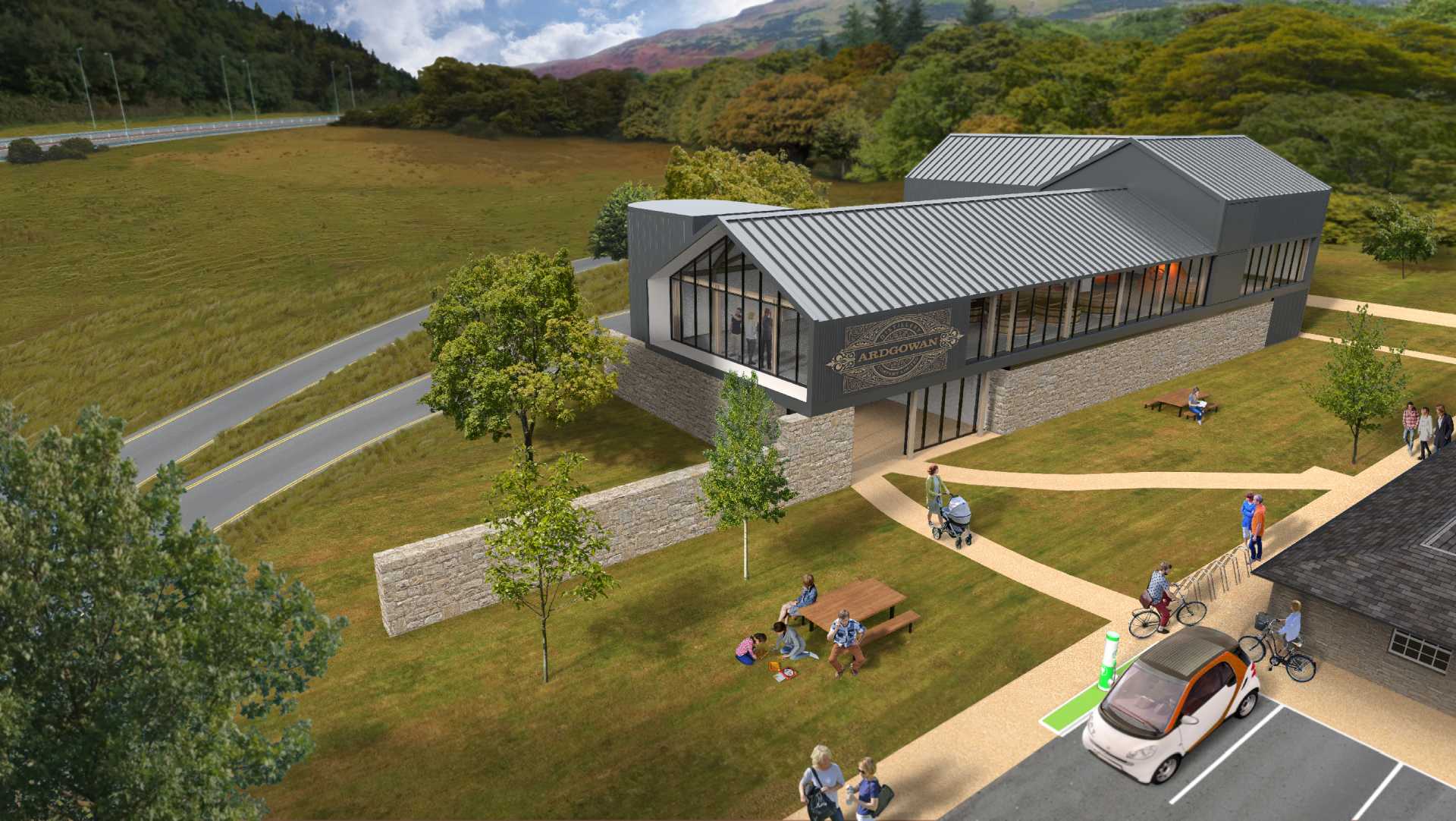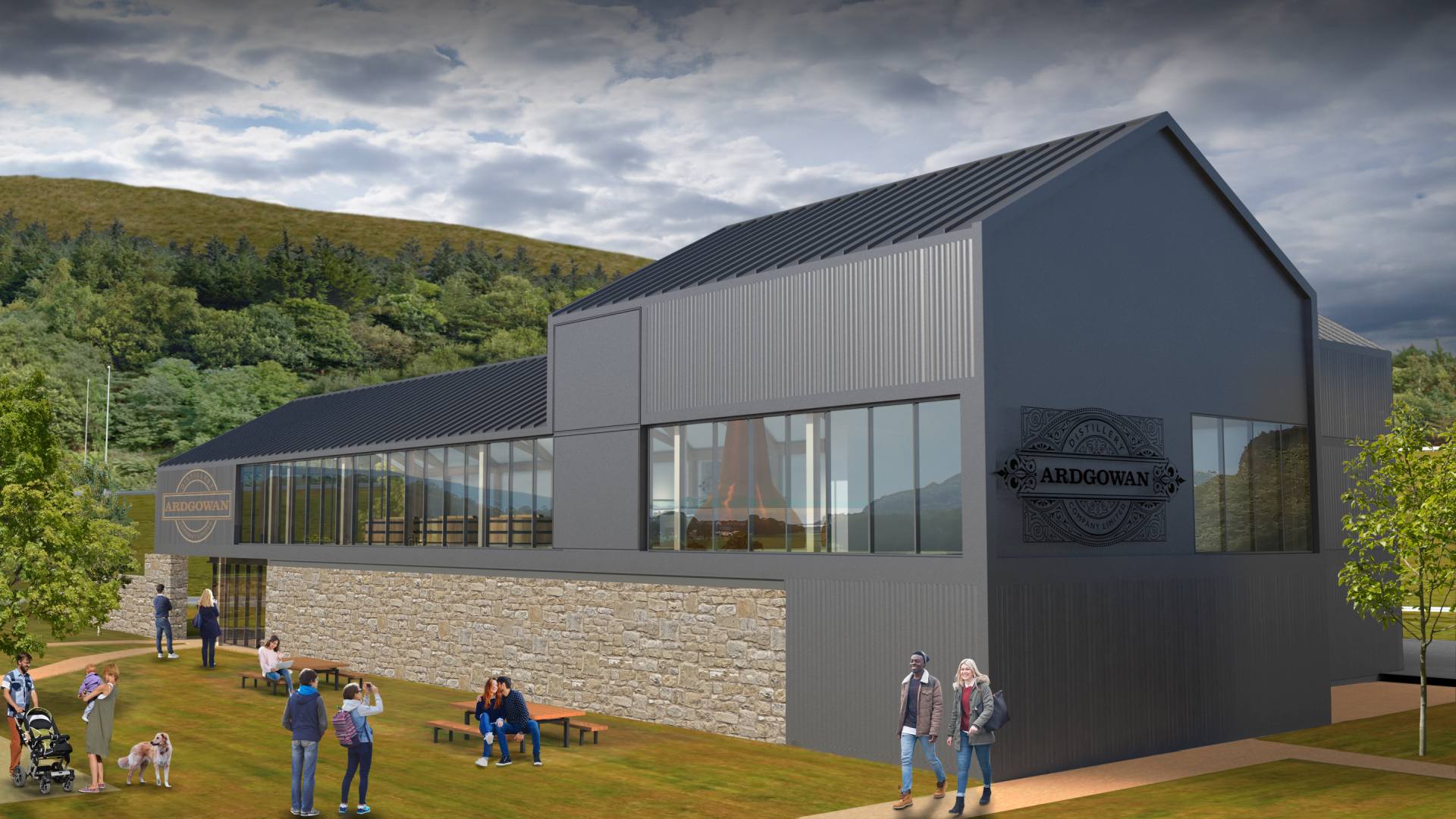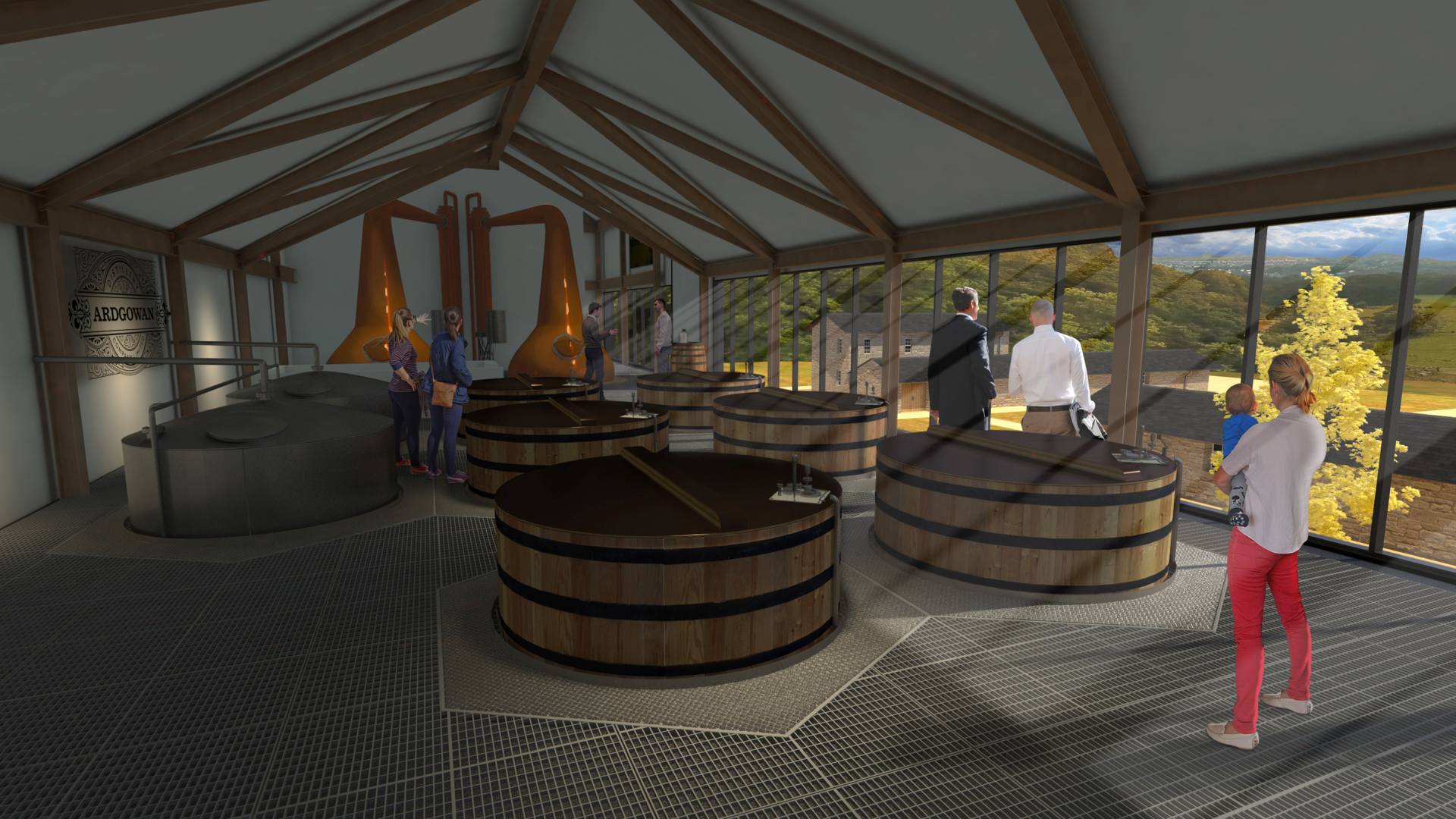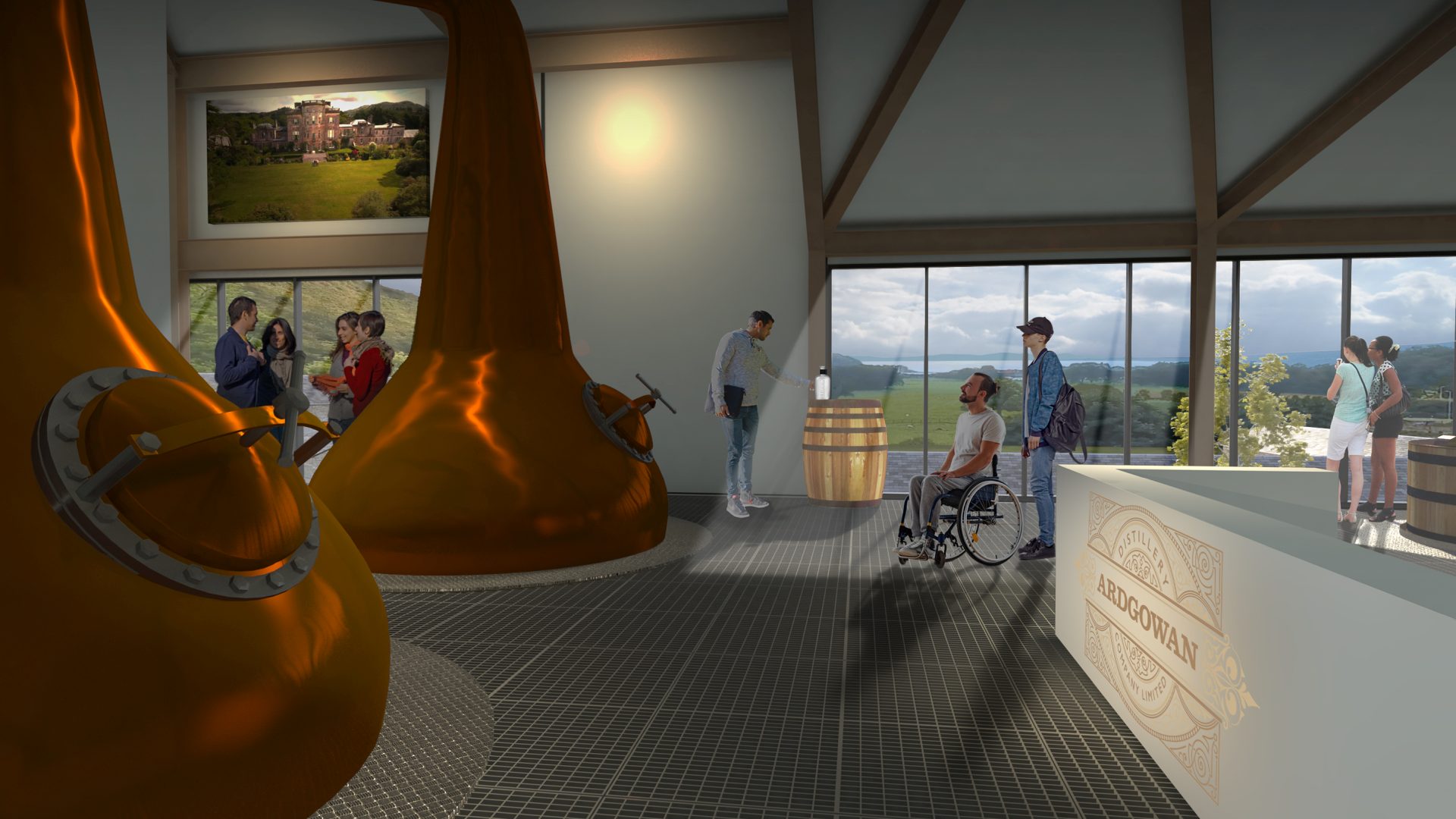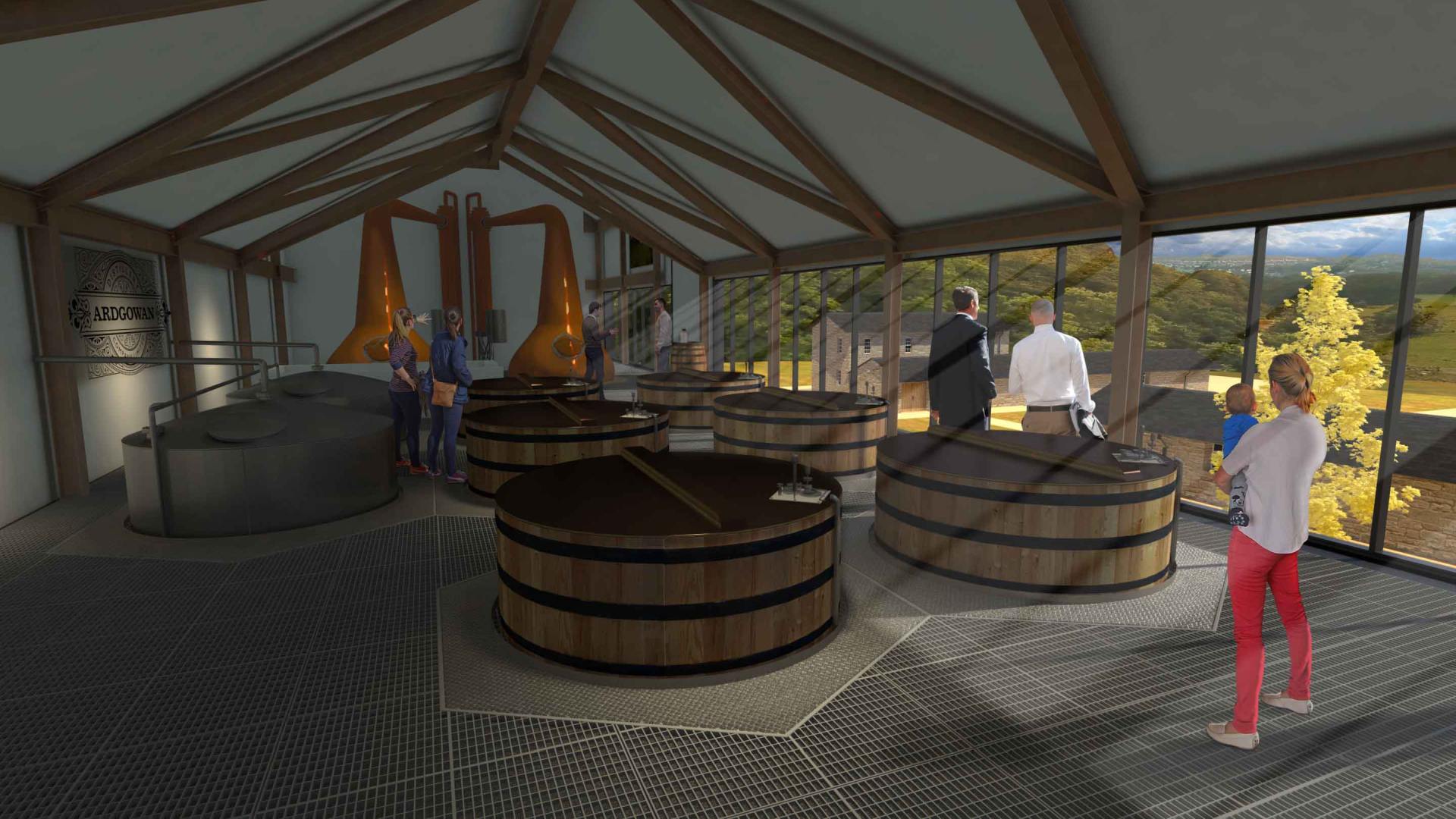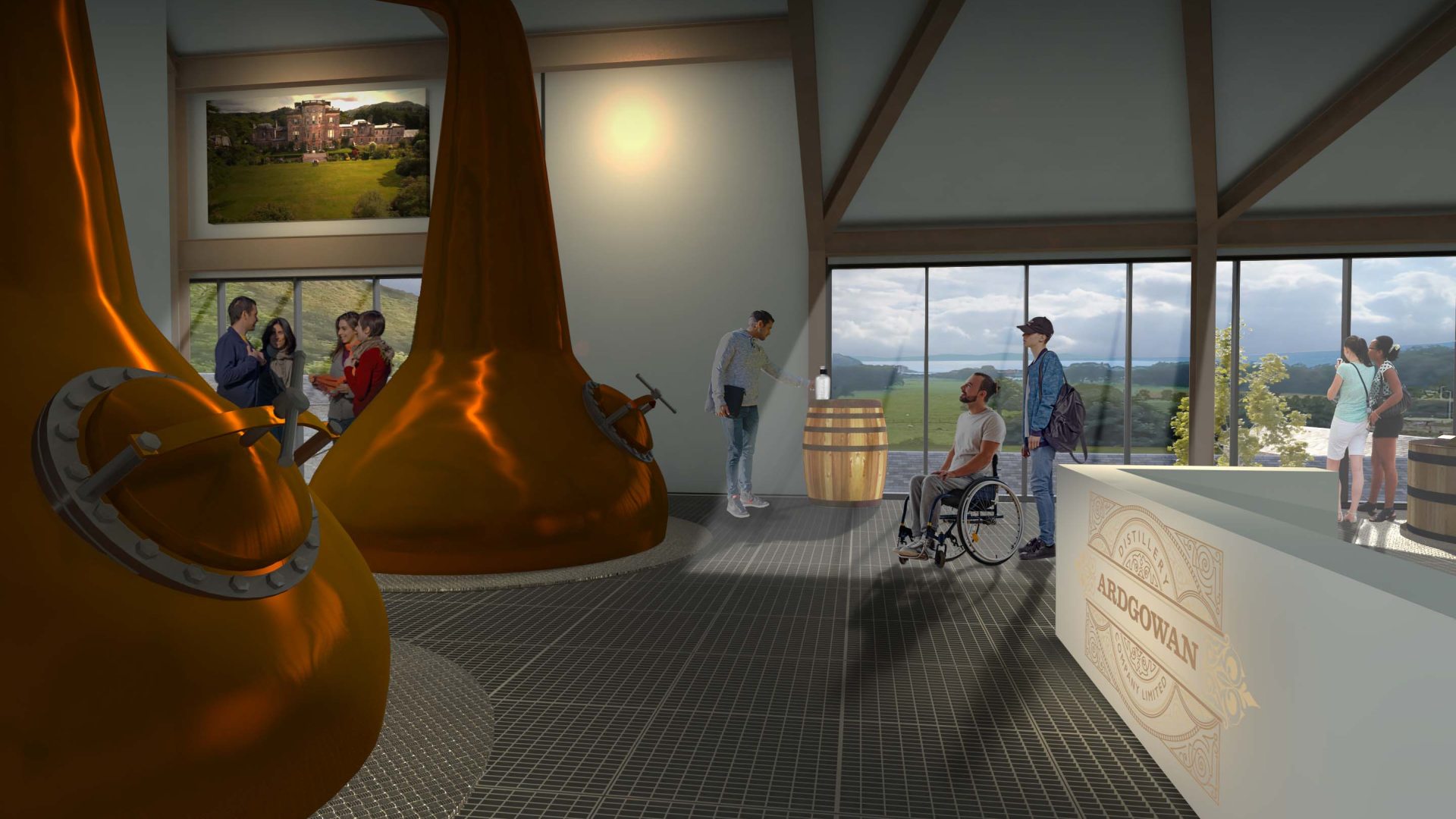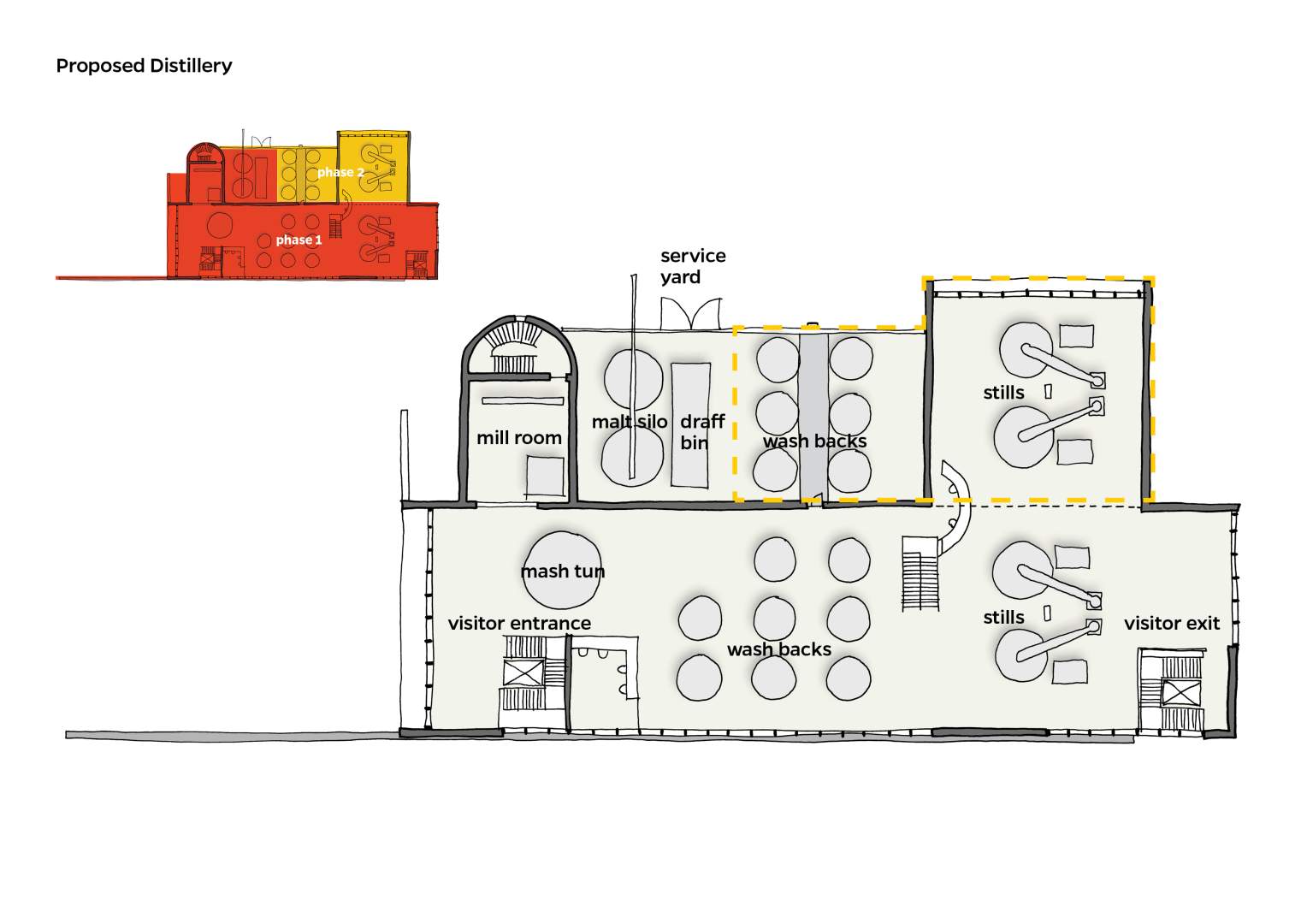30 Meilen westlich von Glasgow, bei Inverkip, soll bis 202 die neue Ardgowan Distillery entstehen – für eine Summe von 12 Millionen Pfund. Man hat schon einmal Pläne dafür gemacht und dafür im März 2017 bereits eine Baugenehmigung erhalten, sie nun aber nochmals überarbeitet und neuerlich den Bauantrag eingereicht, der nun auch von der Inverclyde Council genehmigt wurde.
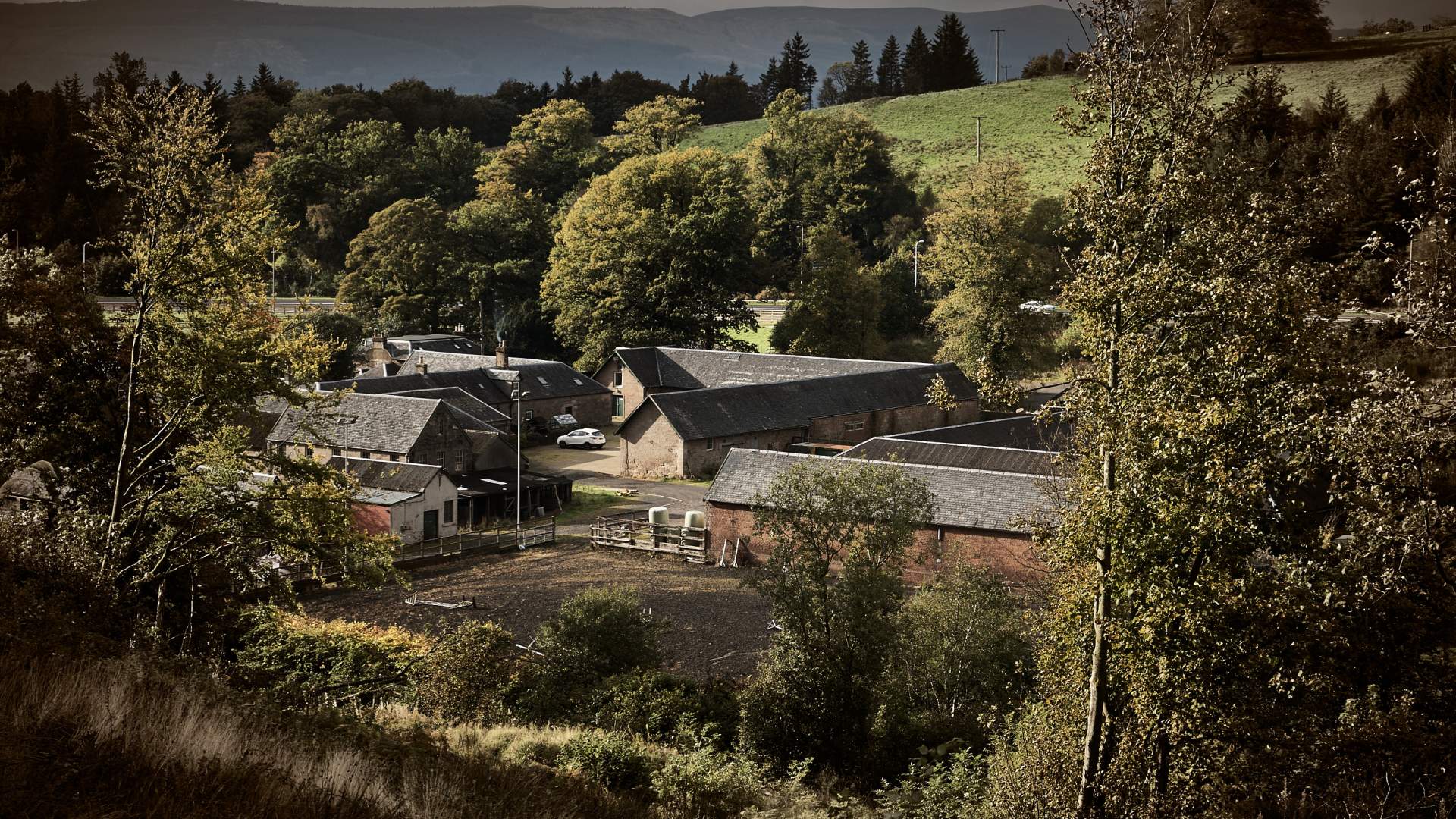
Die neuen Pläne sehen eine moderne, lichtdurchflutete Brennerei vor, mit einem offenen Besucherzentrum, und man hat großen Wert darauf gelegt, so umweltbewusst wie möglich zu bauen und zu produzieren.
Die englischsprachige Pressemitteilung finden Sie untenstehend, und nach ihr die Architektenzeichnungen und den Plan für die Brennerei, die uns von den Betreibern dankenswerterweise zur Verfügung gestellt wurden:
Ardgowan Distillery unveils ambitious plans for Inverclyde distillery
- ‘State-of-the-art, modern distillery’ incorporates energy-saving features
- Increased use of glass to enhance visitor experience
- Scalable design aims at 1 million litres per annum (lpa) in phase 1
Ardgowan Distillery has revealed ambitious designs for their new £12 million distillery which is being built on the Ardgowan Estate near Inverkip, 30 miles west of Glasgow.
The plans [pictured] showcase the flagship building which has just secured revised planning consent from Inverclyde Council.
The striking new design, by Michael Laird Architects, brings a number of improvements on the original proposal (which was granted full planning consent in March last year) and will sit alongside the distillery’s visitor centre which will be housed in existing buildings on the Bankfoot site.
“This is a state-of-the-art, modern distillery which not only looks fantastic, but will reduce our environmental impact wherever possible,” says distillery Chief Executive Martin McAdam.
“Our architects have worked closely with civil engineers Blyth & Blyth and process designers Briggs of Burton to create a striking distillery which fits well in the landscape and uses heat recovery and closed loop cooling to reduce energy use and water consumption, whilst the extensive use of glass means visitors will get a clear view of the bright airy interior,” McAdam says.
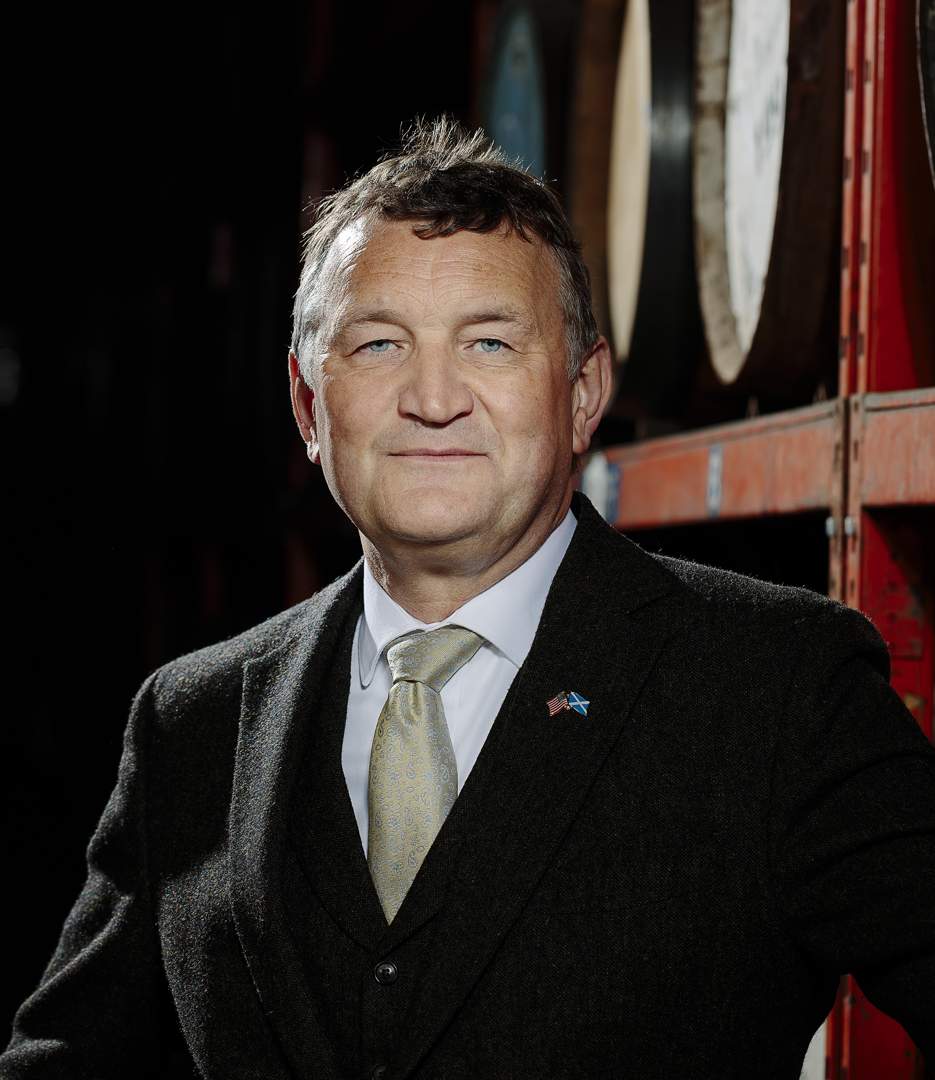
The first phase of the distillery incorporates two copper stills and six timber-clad washbacks, with a planned output of 1 million litres per annum. Future output can be doubled via the addition of two further stills plus washbacks in an already-approved second phase.
McAdam says the stills will be supplied by a Scottish firm and that building contract discussions are underway. It is also understood that the company is in advanced discussions with a keystone investor.
Last month the distillery released its first whisky, a 600-bottle run of Ardgowan Expedition 20-year-old [pictured], a premium blend of malts containing whisky which has been to the South Pole – to positive industry reviews.
“Ardgowan Expedition is a real collector’s item,” McAdam says. “It has been blended by our Chairman Willie Phillips and comprises single barrels from upper Speyside and the northern Highlands, married together in sherry casks. It is something quite special.”

Ardgowan plans to follow this with a series of limited-edition malts – at around the £50 price mark – next year. These will showcase premium single and blended malts in the seven to eight-year-old range and will offer lowland flavour profiles which will be ‘indicative’ of Ardgowan Distillery’s future output, McAdam concludes.
Expedition comes in a 70cl bottle in a wooden presentation case and is bottled at 46 percent. It is available direct from Ardgowan or via exclusive whisky retailer Robert Graham 1874.
The new distillery will resurrect the name of the Ardgowan Distillery, which was founded in 1896 and located in Baker Street, Greenock. After a few years of whisky production, the distillery was used to make grain spirt and industrial alcohol until it was destroyed in the May Blitz of 1941.
Computerbilder der geplanten Destillerie
alle Bilder mit freundlicher Genehmigung der Ardgowan Distillery
